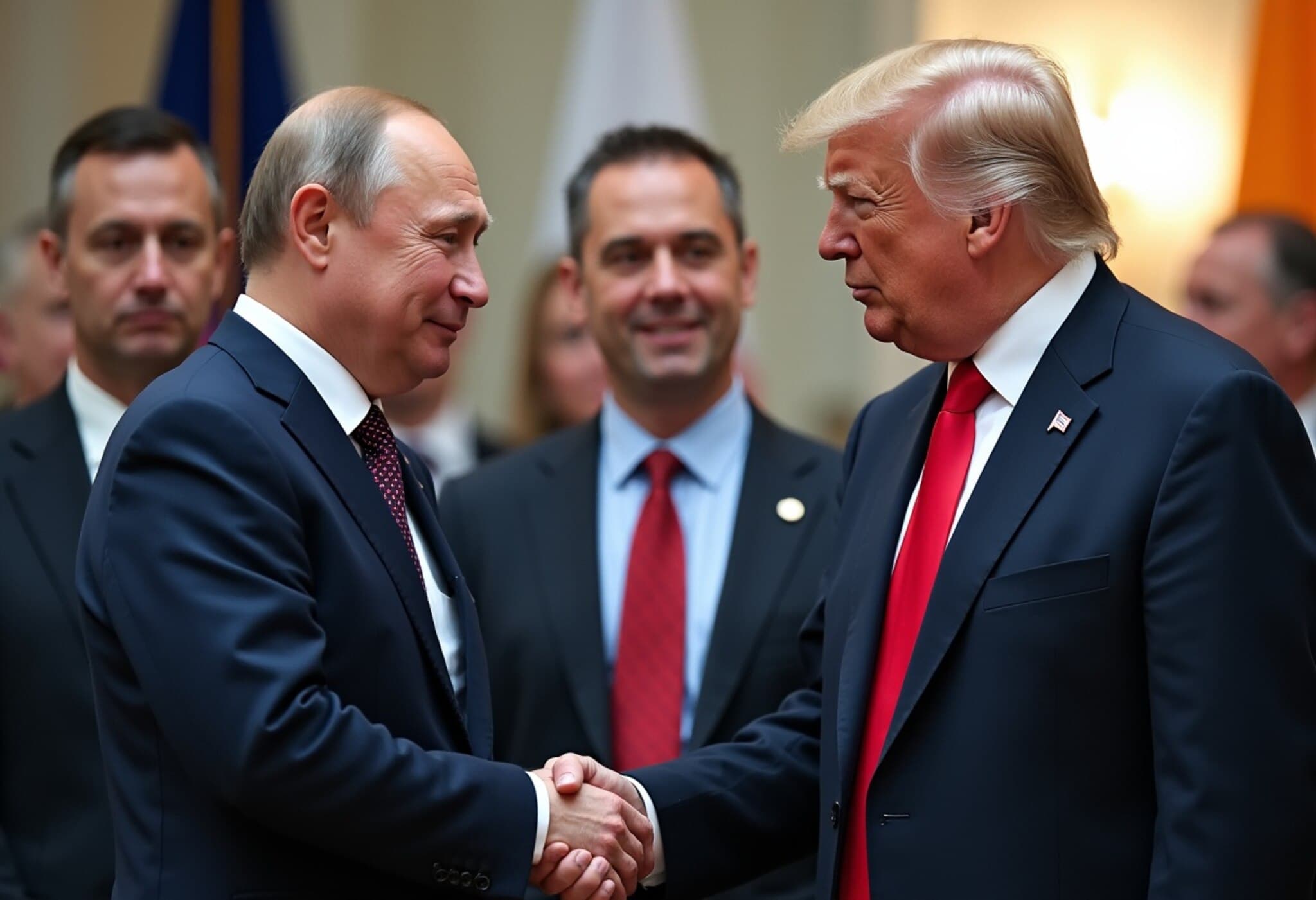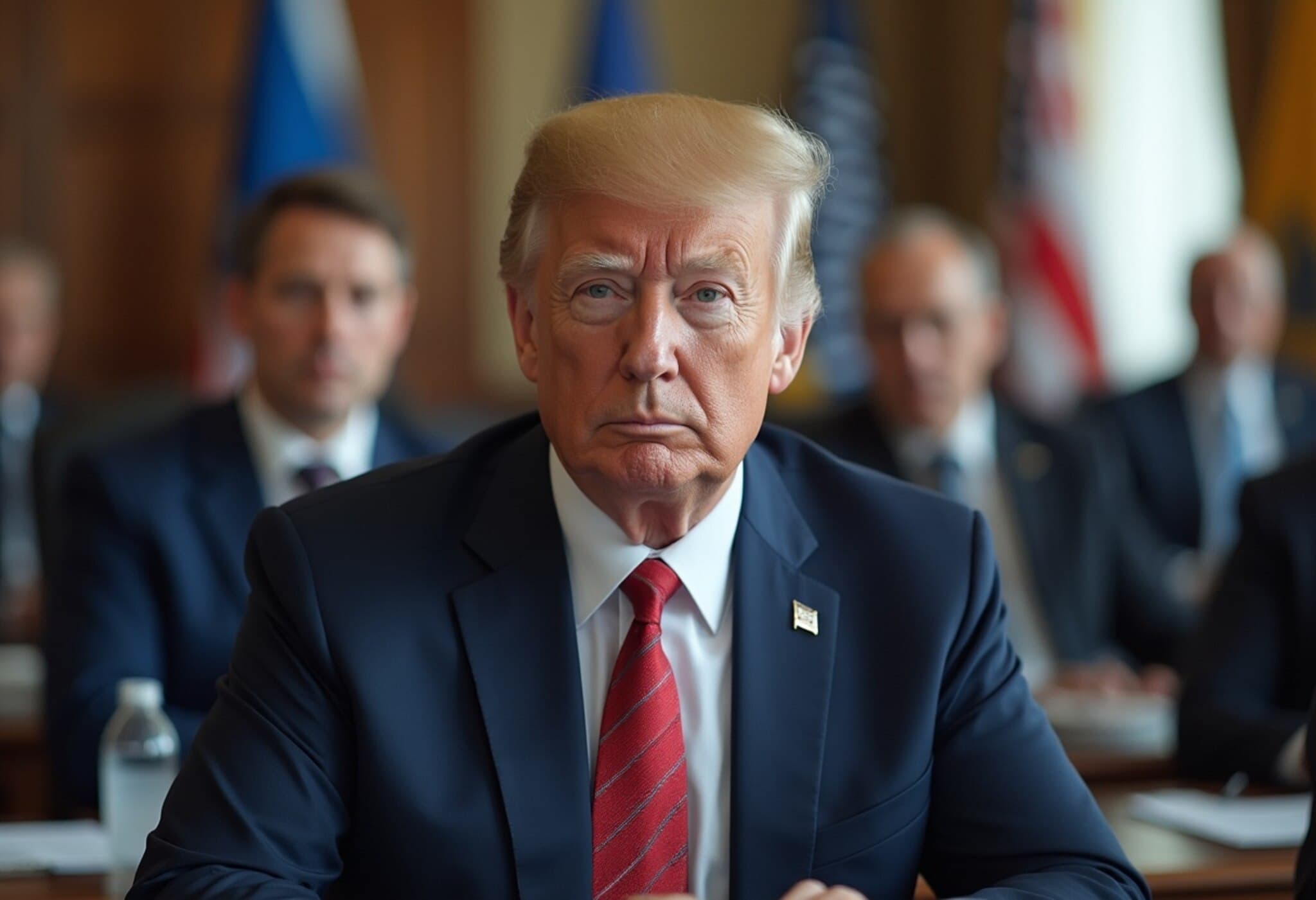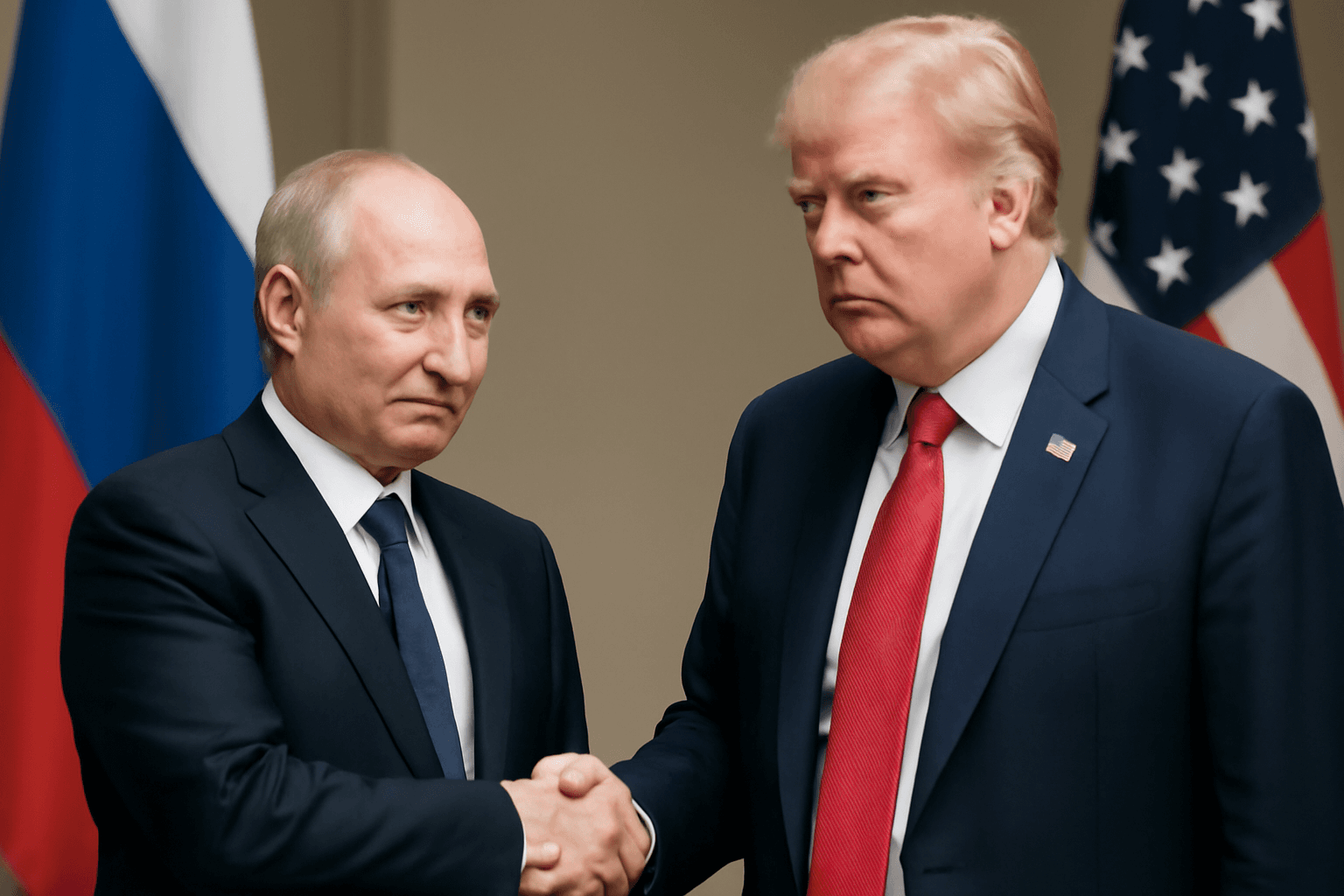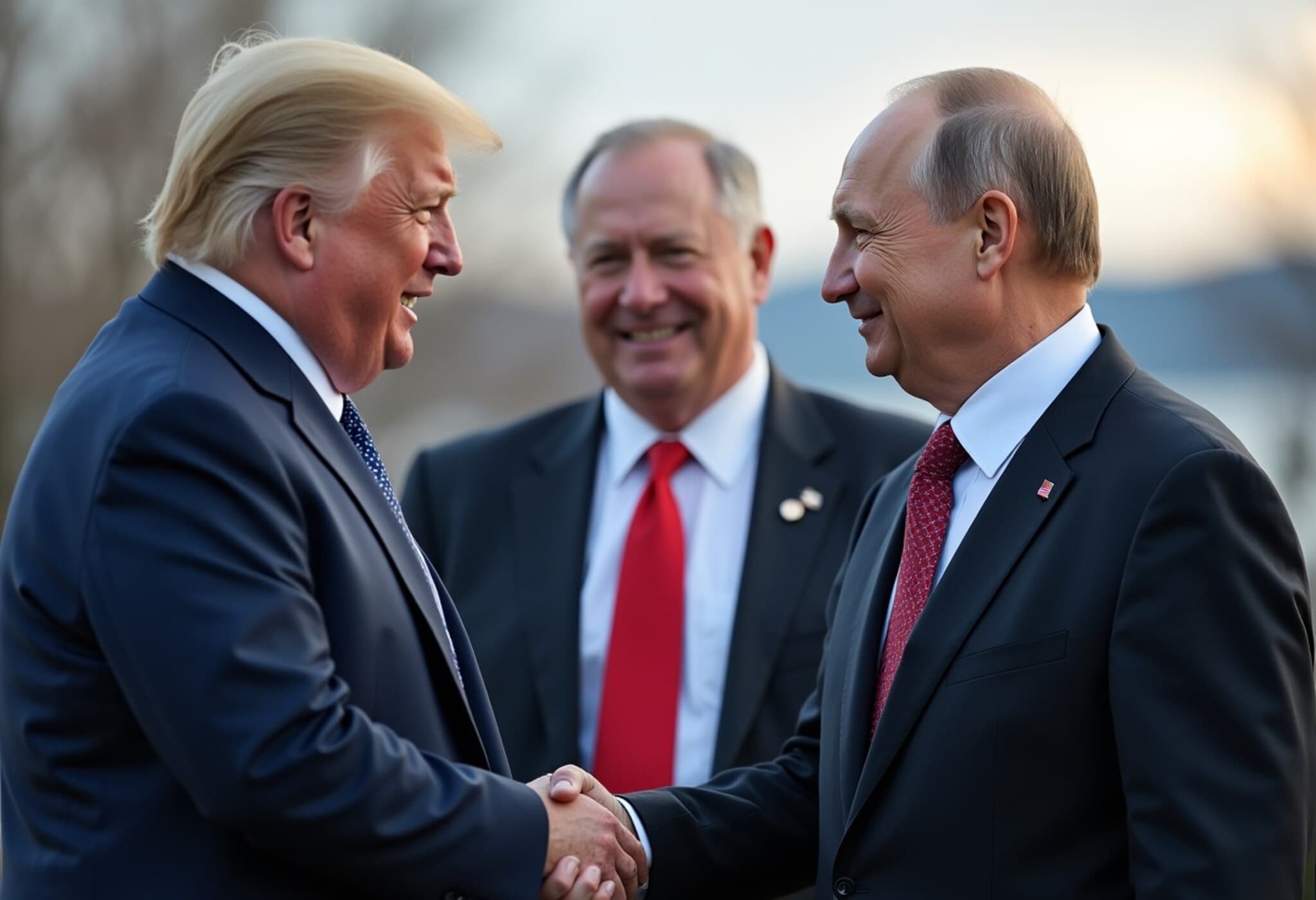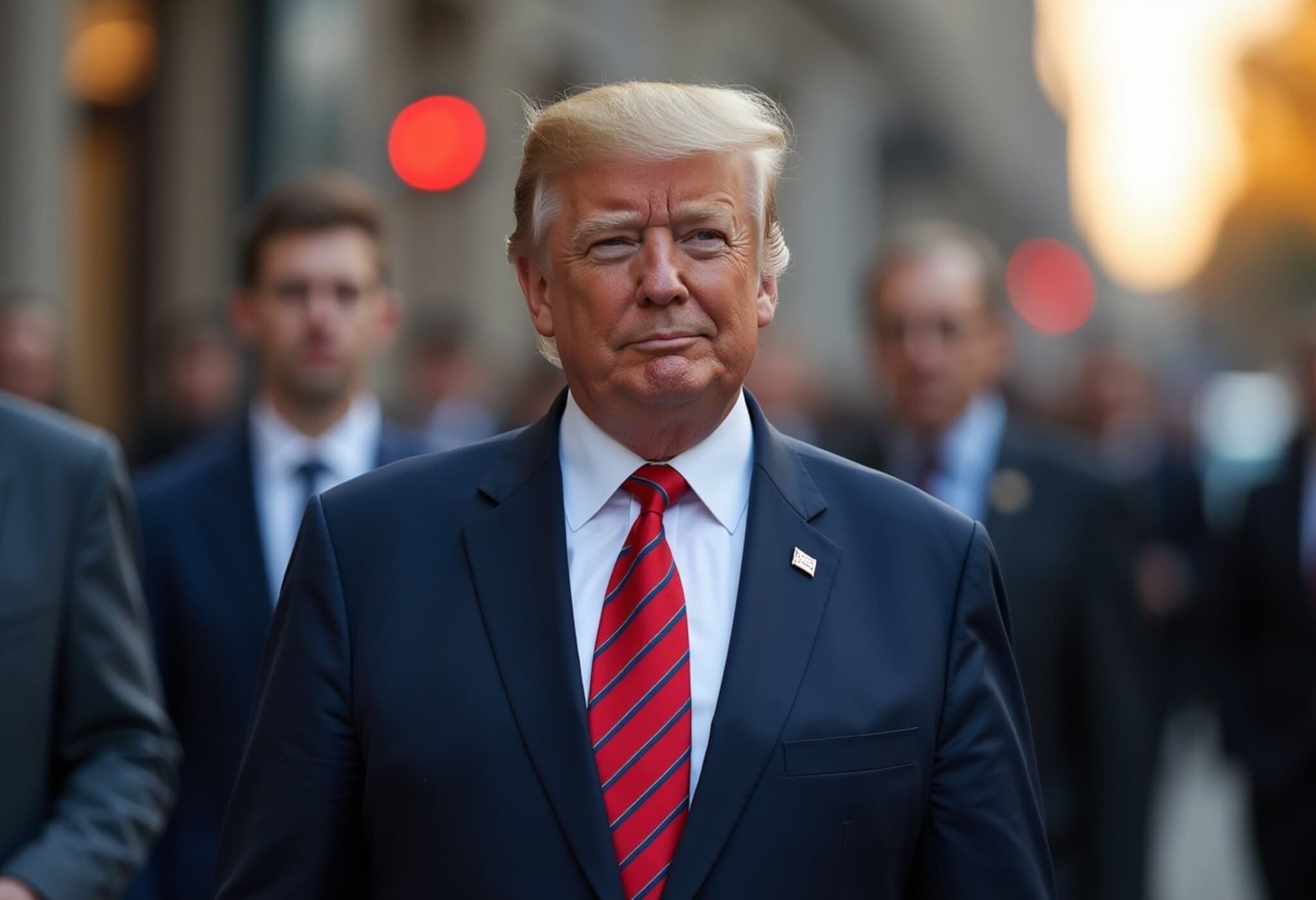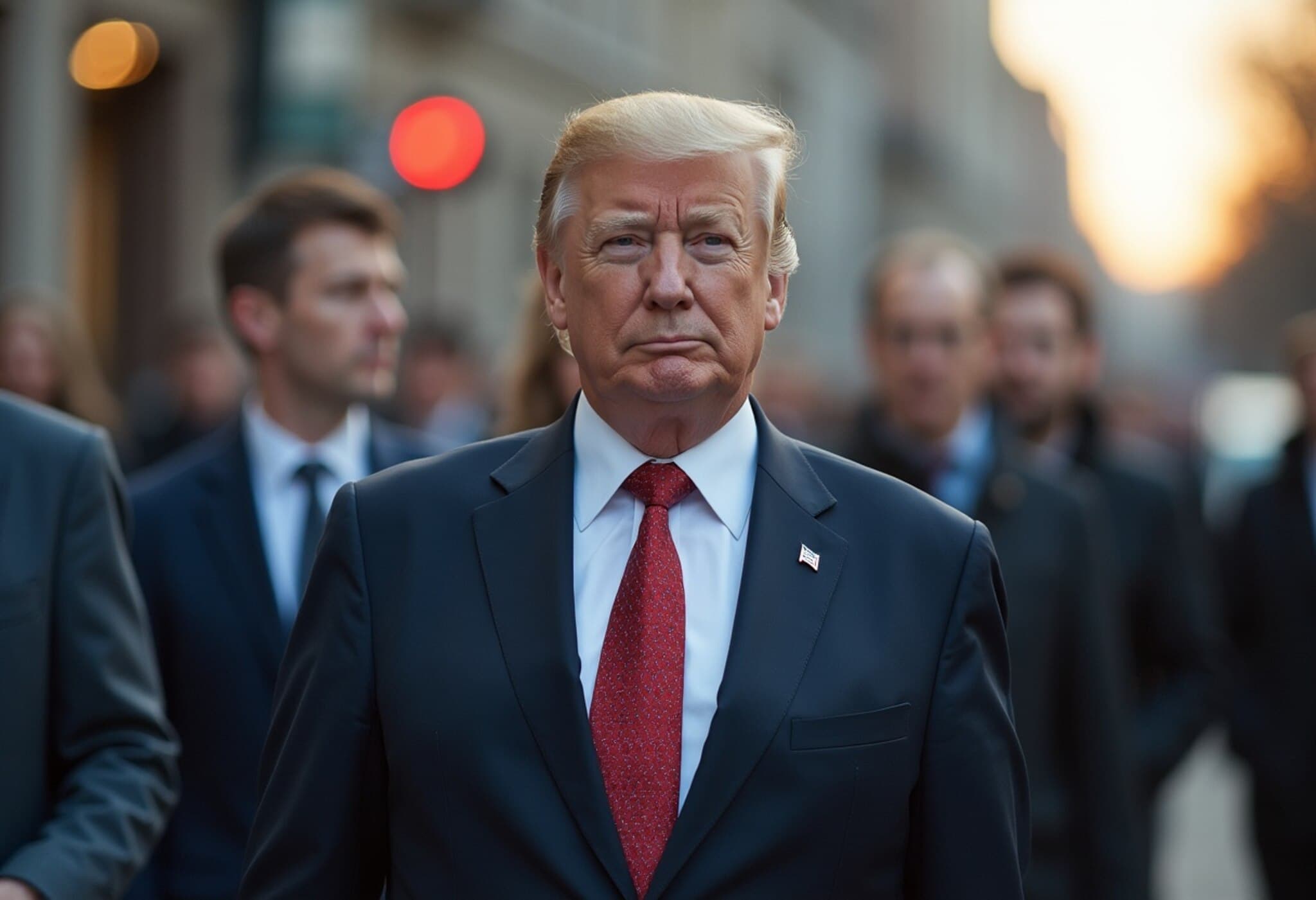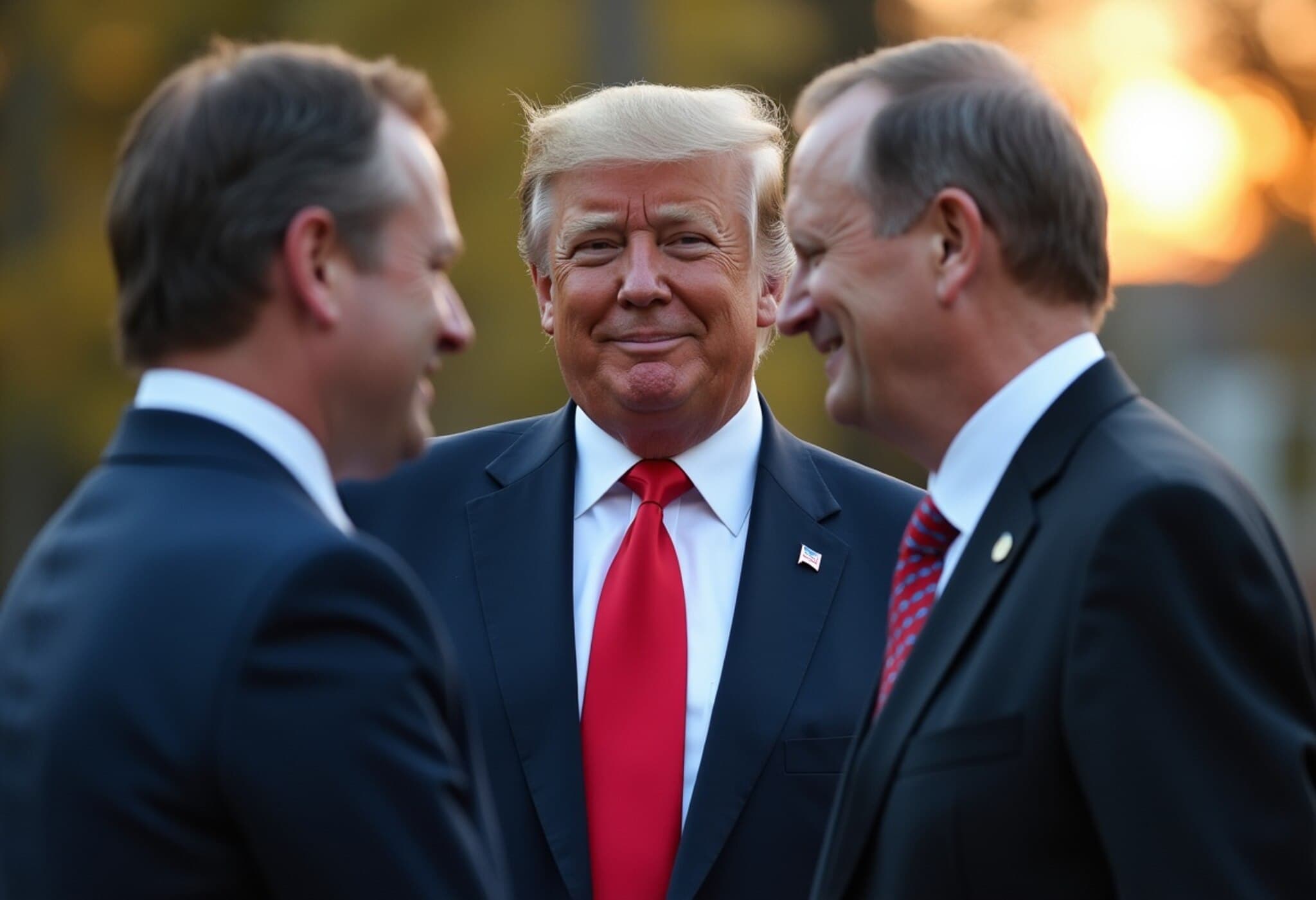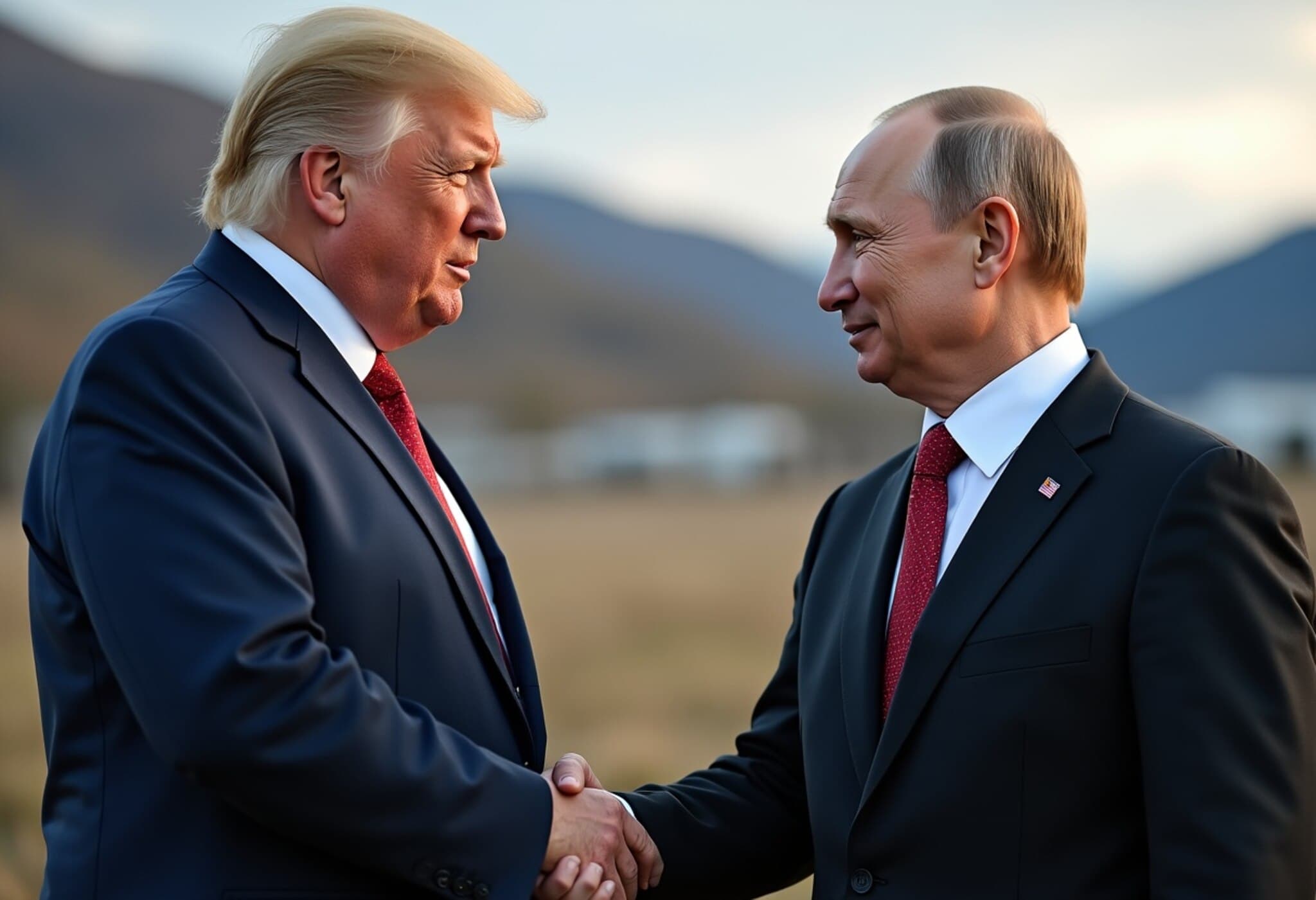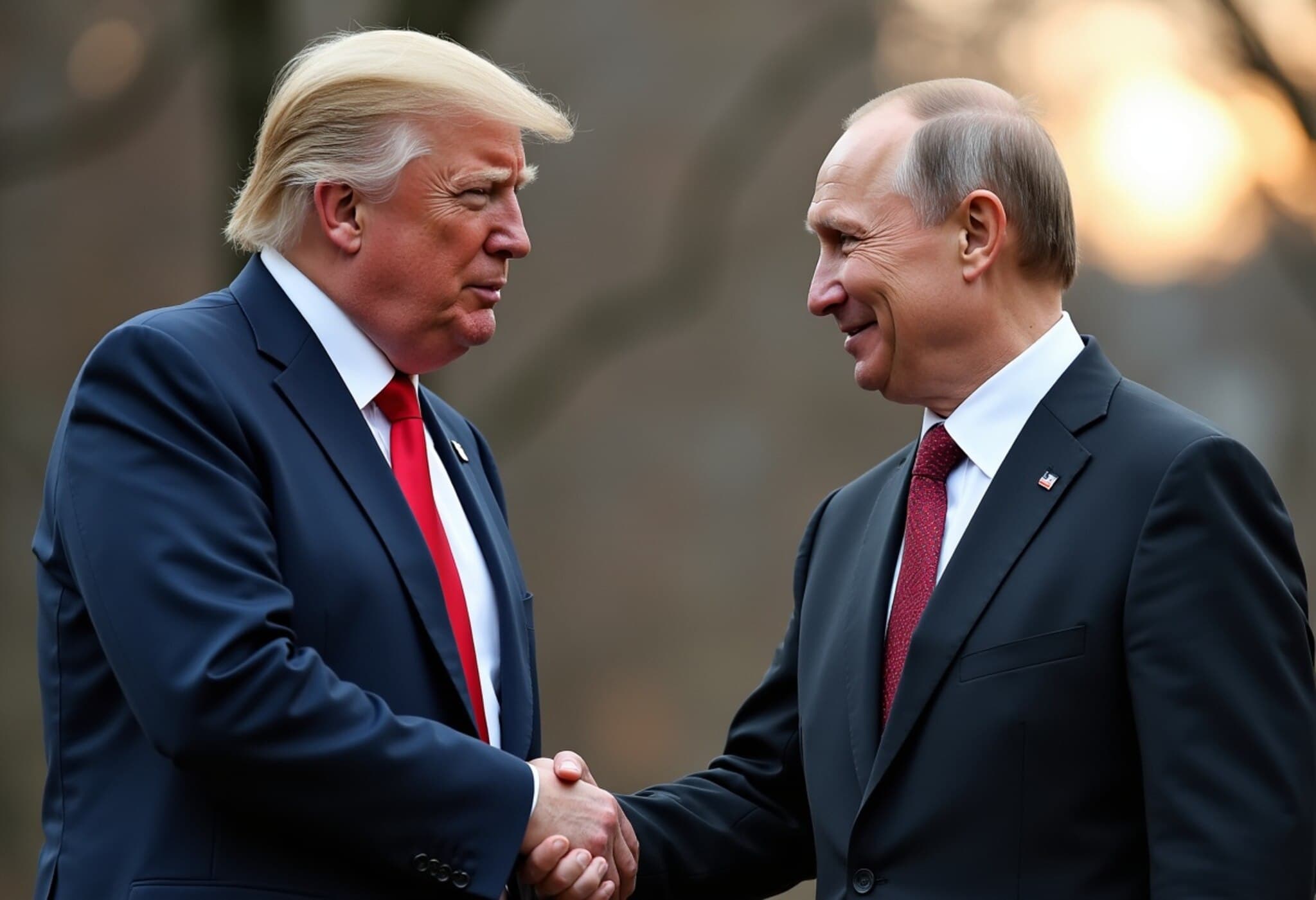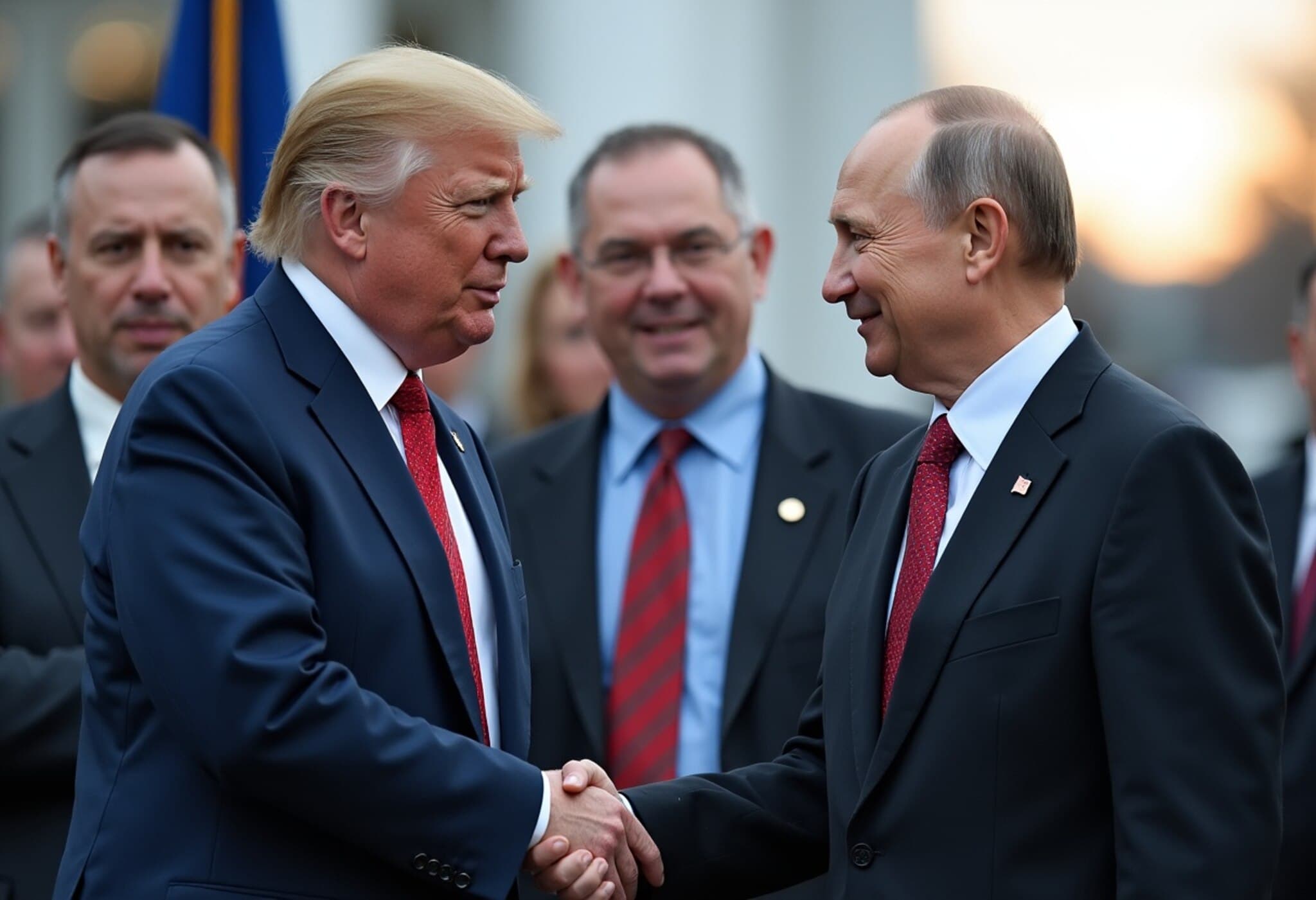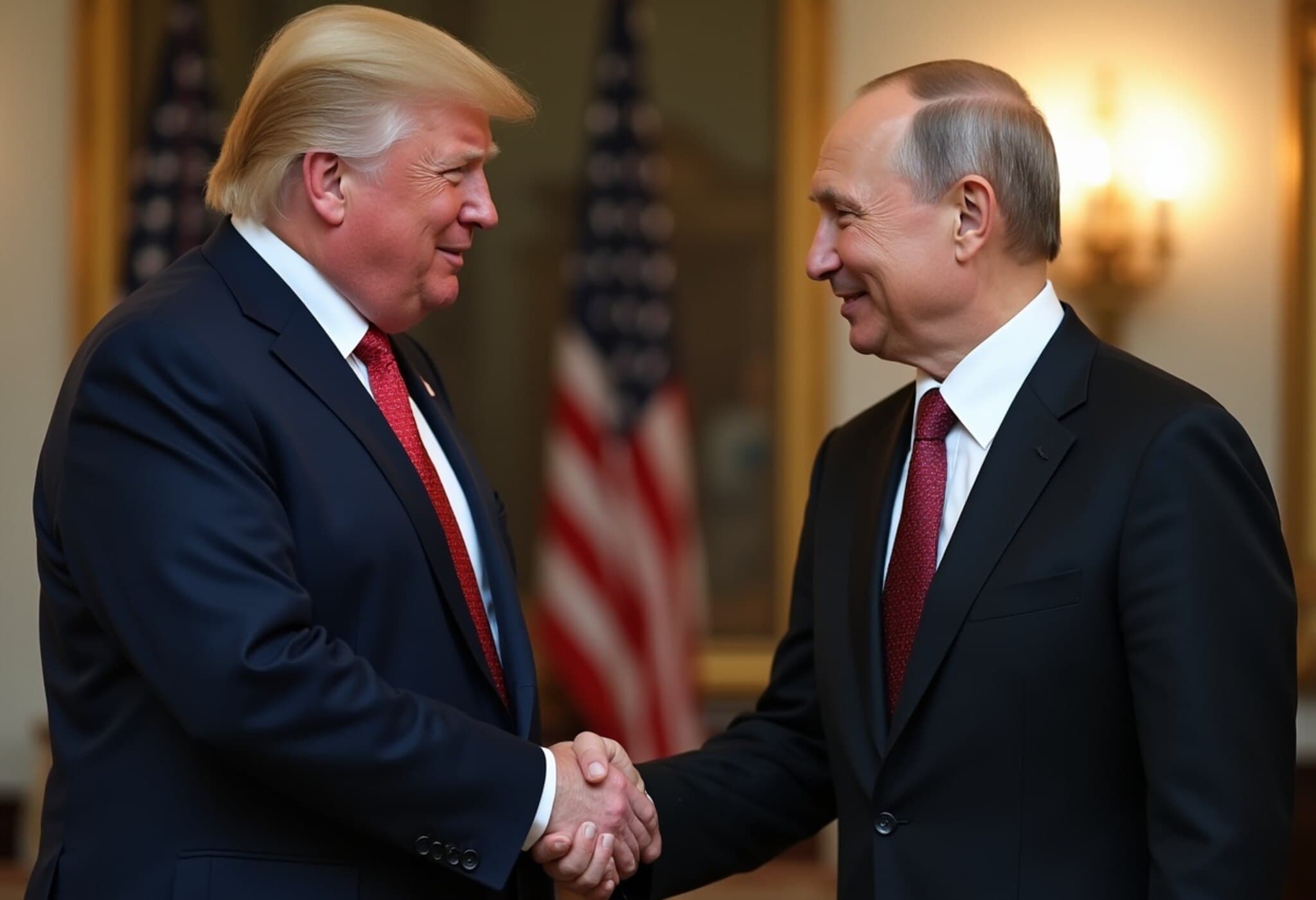Putin Faces Press on Civilian Casualties at Alaska Summit
In a rare and tense moment, Russian President Vladimir Putin was confronted by a barrage of pointed questions from foreign journalists upon his arrival in Anchorage, Alaska, this past Friday. The questions centered on the escalating civilian casualties in the ongoing Ukraine conflict and the elusive prospects for a ceasefire.
Putin’s responses were notably ambiguous. When pressed with the poignant question, "When will you stop killing civilians?", he appeared to feign inaudibility, offering no substantive answer. Similarly, when challenged on the trustworthiness of his words in any ceasefire discussions, he remained noncommittal, reflecting the opaque nature of Russia’s position amid the war.
Trump Observes as Media Queries Highlight Conflict’s Human Toll
US President Donald Trump was present during this high-stakes exchange, witnessing firsthand the international scrutiny directed at Putin. The summit took place at a US military base, where both leaders sat side by side beneath a backdrop proclaiming "Pursuing Peace," a stark visual contrast to the underlying tensions.
As reporters continued their inquiries, Trump offered only a courteous, "Thank you very much," before officials ushered the press away, ending the spontaneous media moment. This interaction underscores the fragile dynamics and heightened media interest surrounding the summit, which could carry implications for the fraught US-Russia relations and the ongoing war in Ukraine.
Contextualizing the Summit: A Rare Face-to-Face Amid Lingering Hostilities
This Alaska meeting marks one of the few in-person encounters between the leaders of the world's nuclear superpowers since the Ukraine conflict erupted more than three years ago. The very occurrence of the summit suggests a mutual desire—whether strategic or diplomatic—to engage directly despite the deep mistrust and divergent narratives.
Notably, President Trump conveyed a clear ultimatum ahead of the discussions, telling Fox News that if the talks fail to progress, he “would walk” out promptly. This remark reveals the delicate balancing act in such diplomatic engagements, where signaling strength and resolve is as critical as seeking breakthrough agreements.
Expert Analysis: What Does This Mean for Ukraine and US-Russia Relations?
The terse exchanges and lack of concrete commitments highlight the profound complexities of the Ukraine war and the challenges in brokering any ceasefire. Analysts suggest that Putin’s guarded responses are influenced by internal pressures and geopolitical calculations, where admitting fault or compromising might be politically costly domestically.
From a US perspective, Trump’s approach seems to emphasize negotiation posturing, aligning with his historical self-portrayal as a dealmaker. However, observers caution that without substantive concessions, such summits risk being symbolic rather than transformative.
Moreover, the episode sheds light on the ongoing struggle of truth and accountability in international conflicts, where civilian suffering often becomes entangled with propaganda and diplomatic theater.
Underreported Dimensions: Media Access and Transparency Limits
- It is rare for foreign or critical journalists to have direct access to Putin, making the Alaska press encounter notable for its openness.
- The limited size and composition of the Russian press entourage usually ensures tightly controlled narratives at official events.
- This momentary breach allows a glimpse into the pressures faced by leaders under global scrutiny and the constraints of media freedom in autocratic contexts.
Looking Ahead: Key Questions for Global Watchers
- Will future US-Russia talks move beyond performative diplomacy toward actionable peace initiatives?
- How might civilian voices and humanitarian concerns be better amplified in such high-level summits?
- Can sustained media pressure contribute to greater transparency and accountability in conflict zones?
Editor's Note
As the smoke of rhetoric and political posturing settles, the human cost of the Ukraine conflict remains at the forefront. This Alaska summit, while symbolically significant, exposes the limitations of diplomacy in the face of entrenched hostilities and mutual distrust. Observers must watch carefully whether such engagements will yield tangible progress or simply reinforce status quos. In an era where global leadership is scrutinized as never before, transparent dialogue and authentic accountability are essential ingredients for lasting peace.
Author: TOI World Desk

